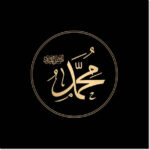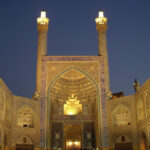SPIRITUAL EQUALITY OF THE SEXES
In many other religions, women have had to fight for their rights and dues, and their struggle, in many cases, is still ongoing. Christian women, for example, have had to struggle to make their voices heard, and have gone to the extreme of changing the text of the Bible to make it less “sexist” and more “acceptable” to women. Islam, on the other hand, has justly granted women their rights without them having to ask, let alone demand and fight.
For Muslim men and women for believing men and women, for devout men and women, for true men and women, for men and women who are patient and constant, for men and women who humble themselves, for men and women who give in charity, for men and women who fast (and deny themselves), for men and women who guard their chastity, and for men and women who engage much in Allah’s praise – for them has Allah prepared forgiveness and great reward. [al-Ahzab 33:35]
A number of Islamic virtues are mentioned here, but the primary message of this ayah is that these virtues are applicable to both, women as well as men. Both sexes have human rights and duties to an equal degree, and the rewards of the Hereafter are available to men and women alike. Each individual will be judged according to his or her deeds. Gender is simply not an issue in this matter.
And their Lord has accepted of them and answered them: Never shall I suffer to be lost the work of any of you, be he male or female: you are members, one of another… [AI ‘Imran 3:195]
Allah has granted the prayers of the Believers and has told us that He will not let the labour of any individual go to waste. Everyone will reap the reward of his or her efforts. A woman may achieve this just as a man may. Man and woman alike are members of the human race, created from the same source and joined by Islam as partners in life and in reward.
Whoever works righteousness, man or woman, and has Faith, verily, to him will We give a new Life, and life that is good and pure, and We will bestow on such their reward according to the best of their action. [al-Natal 16: 97]
The spiritual equality of women to men in Islam is abundantly clear, so nobody should fall for the prejudiced view propagated by the Islamaphobes in the Western media. From the time a child is conceived, Islam gives glad tidings to a woman regardless of the gender of the foetus. The pregnant woman is held in the highest esteem, and her patience in bearing the discomforts of pregnancy is regarded as an act of virtue which brings her closer to Paradise. If the baby is a girl, this opens up further opportunities for the parents to attain Paradise. In stark contrast to the attitude of the pagan Arabian society which buried female babies alive (and the modern jahiliyyah in which many societies view the birth of a girl as bad news), the Prophet gave the glad tidings of Paradise as the reward for the one who welcomes a daughter, brings her up properly, provides sound education and arranges a good marriage for her.
In another hadith, it is stated that the fire of Hell will not be permitted to touch one who goes through trials and tribulations because of a daughter, but still does not hate her, and treats her well. The Qur’an expressively forbids killing babies, whether by infanticide or abortion, for fear of poverty or losing face in the community:
Say: Come, I will rehearse what Allah has (really) prohibited you from: join not anything as equal with Him; be good to your parents; kill not your children on a plea of want – We provide sustenance for you and for them – come not nigh to shameful deeds, whether open or secret; take not life, which Allah has made sacred, except by way of justice and law: thus does He command you, that you may learn wisdom. [al-an ‘am 6:151]
The Qur’an also tells us that the innocent girls who were slain for no other reason than that they were female, will be asked on the Day of Judgement for what sin they were slain:
When the female (infant) buried alive, is questioned – for what crime she was killed [al-Takwir 81:8-9]
The crime is that of the parents, not of the child. Parents should not think that they are at liberty to do whatever they like with regard to their children. It is almost beyond belief that in the modern world the practice of infanticide, in the epithet of abortion, can be allowed to exist. China is currently experiencing an epidemic of this barbarism, under its strict population control laws; families are allowed only one child, and most parents want sons, so girls are abandoned and allowed to die, or are killed, so that the parents may have another child, hopefully, a boy.
The Western nations, which are so quick to condemn China, are not so far behind in savagery, except they have sanitised infanticide in the guise of abortion. Not only does the Qur’an protect the female infant from being murdered by ignorant parents, but it describes her birth as good news, and grants her the right of inheritance from her father, husband and brother, and gives her the right to own property and conduct business transactions independently and in her own right.
When news is brought to one of them, of (the birth of) a female (child), his face darkens and he is filled with inward grief! With shame does he hide from his people, because of the news that he has had! Shall he retain it on (sufferance and ) contempt, or bury it in the dust Ah! What an evil (choice) they decide on. [al-Natal 16.58-59]
This ayah refers to the period of Jahiliyyah, just before the advent of Islam, when it was the custom of the pagan Arabs to bury female infants alive. Islam totally forbids such crimes, but sadly this evil practice is still continuing in many communities, where women are not valued and are seen as a burden. At the very least, the birth of a girl is resented and she may be neglected whilst the best food and education is given to her brothers; at the worst, modern technology is exploited so that if a female foetus is detected via an ultrasound scan, it may be aborted, whilst a male foetus will be carried to full term. The spiritual equality of the sexes in Islam extends to the worldly plane, and education is required both for males and females.
The Prophet said: “Seeking knowledge is a duty for every Muslim male and female”. He also urged Muslims to “Seek knowledge from the cradle to the grave”. The importance of seeking knowledge cannot be over-emphasised. All Muslims are urged to educate themselves, to act upon their knowledge, and to convey it to others. … Those truly fear Allah, among His Servants, who have knowledge. [Fatir 35.28] It is only those with knowledge and understanding who will be truly conscious of the glory and transcendency of Allah. They will understand the transience of the present world and the permanence of the Hereafter, and thus they will be concerned about their future and will strive to attain knowledge of Divine guidance. Islam promotes the education of both sexes. Islamic history, from the very beginning, records the names of numerous female scholars, foremost among whom is ‘A’ishah, who was one of the greatest narrators of ahadith.
Not only was she responsible for conveying over two thousand ahadith, but the great men of her time used to consult with her on matters of fiqh (jurisprudence). MARRIAGE There is no celibacy in Islam. Islam considers sexuality to be a natural part of life, which is to be channeled into a healthy marriage life; sinful fulfillment of the sexual urge and exploitation of women through prostitution, pornography and rape is utterly forbidden. The Prophet 14 advised Muslims: “Whoever is able to marry, should marry, for that will help him lower his gaze and guard his modesty”. As well as providing a legitimate channel for sexual energy which will keep a person away from sin – marriage provides comfort, security, solace and companionship.
Islam not only regards marriage as necessary but has raised it to the level of being a positive virtue, whereby those who marry will be rewarded for doing so, as for any other good deed. The Prophet As emphasised the importance of marriage when he described it as being half of faith. An important condition of marriage is that this union should be by the consent of both partners; neither male nor female should be forced into a marriage. In particular – as a warning against the oppression of women – Islam clearly states that a marriage contracted without the free consent of the woman is null and void.
The Prophet said: “No widow should be married without consulting her, and no virgin should be married without her consent..”.” Prospective marriage partners are encouraged to see one another before they agree to marry. Jabir reported that the Messenger of Allah said, “When one of you seeks to marry a woman, if he is able to have a look at the one he desires to marry, let him do so”. Above all, marriage in Islam is a contract between two equal parties. As an equal partner, the Muslim woman may stipulate conditions in the marriage.
In contrast to British women, who even now do not have the right to draw up a contract or stipulate conditions, Muslim women were given this right fourteen hundred years ago. The woman may stipulate, prior to marriage, conditions, including the transfer of divorce power to herself, restricting the husband to one wife only, and clearly defining the conditions of maintenance.
Marriage in Islam is much more than a means of satisfying sexual desires; it is a social contract of cohabitation through which both partners may find companionship and a refuge from the trials and tribulations of life. In Islam, a woman is not seen as an object for male gratification or a workhorse who is expected to cater to every need and whim of the male. She is a spiritual and moral being who is brought into union with a man on the basis of a solemn pledge which Allah is called upon to witness. The Prophet 914 is reported to have said, “You have seen nothing like marriage for increasing the love of two people”. Today in the West, married women who retain their maiden names are viewed as feminists or unusually self-assertive. Muslim women, however, have always been allowed and expected to keep their maiden names after marriage.
This right to maintain their own identity was given to women in Islam when elsewhere in the world women were seen as being barely human and debates raged as to whether they even possessed a soul, let alone be given independence.
The Qur’an describes marriage in the most moving and eloquent terms: . They [wives] are your garments and you [husbands] are their garments…. [al-Baqarah 2.187] And among His Signs is this, that He created for you mates from among yourselves, that you may dwell in tranquillity with them, and He has put love and mercy between your (hearts): verily in that are Signs for those who reflect. [al-Rum 30:21] It is He Who created you from a single person, and made his mate of like nature, in order that he might dwell with her (in love).. [al-A’raf 7.189] (He is) the Creator of the heavens and the earth: He has made for you pairs from among yourselves.. [al Shura 42:11]
In Islam, there is no notion of a woman being responsible for the “Fall” or of being the first sinner and therefore responsible for all of mankind’s woes. There is no idea of man being created out of superior material and woman out of base matter. A woman is made equal, both men and women are the progeny of Adam, so both have similar souls. mankind! Reverence your Guardian-Lord Who created you from a single person, created, of like nature, his mate, and from them twain scattered (like seeds) countless men and women – fear Allah, through Whom you demand your mutual (rights). [al-Nisa’ 4:1] And Allah has made for you mates (and companions) of your own nature, and made for you, out of them, sons and daughters and grandchildren. And provided for you sustenance of the best: will they then believe in vain things, and be ungrateful for Allah’s favours? [al-Natal 16:72] Islam does not view women as the instrument of the devil, as is asserted by Christian teachings. The Qur’an describes a woman as muhsanah, a fortress against evil because a good woman helps her husband maintain the path of righteousness. Muslim men are continually admonished to treat their wives kindly.
To those men who oppress their wives: O you who believe! You are forbidden to inherit women against their will. Nor should you treat them with harshness, that you may take away part of the dower you have given them – except when they have been guilty of open lewdness; on the contrary live with them on a footing of kindness and equity. If you take a dislike to them it may be that you dislike a thing, and Allah brings about through it a great deal of good. [al-Nisa’ 4:19] Men are commanded by Allah to consort with women amicably and honourably. They should refrain from harshness in speaking to and dealing with them. Behaviour that goes against standards of morality and common courtesy is prohibited. Such wicked and brutal conduct is the sign of ignorance (jahiliyyah) which Islam came to abolish. Muslims are admonished to treat women equitably. The Qur’an forbids them to inherit women and abuse them, sexually or otherwise, as was the custom prior to the advent of Islam and as is still practised in many societies where the rich and strong take advantage of the poor and weak in this way.
This Islamic rule applies not only to the Arabs of the seventh century CE but to all subsequent generations of Islam. Men are forbidden to abuse women and are commanded to live amicably with their marriage partners. The command of Allah to do so is reinforced by the comment that while a man may find some trait or aspect of his wife’s behaviour that he dislikes, it may be that Allah will bring about something good if he tolerates it graciously and accepts his wife for what she is. In all of this, there is a benefit for the man.
The Prophet enhanced this message of equality and fair treatment of women by setting the supreme example for mankind to observe and emulate. He demonstrated the importance of taking care of oneself and one’s daily needs, instead of imposing on one’s wife. Accounts of his life give numerous examples that “modern men” may learn from. He attended to his own personal needs, he helped his wives in the house, and he even stitched and mended his own clothes.
He demonstrated that a man is never too great to clean and look after himself, and he imparted the following advice: “The best among you is the one who is best to his family, and I am the best among you to his family” “The most perfect believers are the best in conduct and the best of you are those who are best to their wives” “Many women have come to the family of Muhammad complaining about their husbands… Those husbands are not the best of you”3 “By assisting your wives in their household duties, you will receive the reward of sadaqah (charity)” ‘A believer must not hate a believing woman; if he dislikes one of her characteristics, he should be pleased with another” “When a woman breastfeeds, for every gulp of milk she will receive a reward as if she had granted life to being, and when she weans her child, the angels pat her on the hack saying, ‘Congratulations! All your past sins have been forgiven, now start all over again”: “O women! Remember that the pious among you will enter Jannah before the pious men” “During pregnancy until the time of childbirth, and until the end of the suckling period, a woman earns a reward similar to that of the person who is guarding the borders of Islam”
In his famous speech given during his Farewell Pilgrimage, in which he reiterated the most important points of Islamic teaching, the Prophet reminded the Muslims of the importance of treating women equitably: “O people, fear Allah with regard to women..”. Once again, men are reminded to remember Allah and fear His retribution, for Allah is aware of everything that passes between them. ‘A’ishah reported that when the Prophet was home, he would help with the household chores, treat his family amicably, and maintain a pleasant atmosphere in the home.
Islamic teachings are very strict when it comes to the fair treatment of others and in the case of physical superiority, Islam clearly states the responsibilities of the stronger party. As women are physically weaker, they are entitled to protection, and men are answerable for any misuse of their physical strength against women. All kinds of physical abuse are forbidden in Islam, which also prohibits psychological abuse such as seclusion and unnecessary restriction of movement and travel.
A husband is also forbidden to disclose his wife’s secrets, as the Prophet said: “the worst of all people is the one who approaches his wife, enjoys her company, then divulges her secrets”.” Marriage is in accordance with the teachings of Islam, so whatever permissible deeds are done within the context of marriage including sex are regarded as virtues.
The Prophet 14 once said, “A man will be rewarded for his physical relations with his wife”. His listeners, somewhat surprised, asked, “Will a person be rewarded for satisfying his passions?” The Prophet replied, “Do you not see that if he were to satisfy his passions in a forbidden manner he would be committing a sin? So if he satisfies himself in a lawful manner, he will be rewarded”. The importance of the physical side of marriage is also referred to in a hadith narrated by Imam al Bukhari.
The Prophet is reported to have upbraided one of his Companions, who was going to extremes in his devotion to worship: “O Abdullah, have I not been informed that you fast all day and stand in prayer all night?” Abdullah said, “Yes, O Messenger of Allah”. He said, “Do not do that. Observe the fast at some times and refrain from fasting at others. Stand in prayer at night, then sleep. Your body has a right over you, your eyes have a right over you and your wife has a right over you”. Islam regards men and women as equal partners who should cooperate in making the home, community and society at large harmonious, happy and successful.
The partners should be loyal, considerate and dependent upon one another. They should work together to overcome any problems and obstacles. They should be jointly concerned with their children’s upbringing and education, and work together to meet their children’s needs. They should work together to overcome the shortcomings of each partner, and present a united front to the outside world. They should also provide companionship and comfort to one another.
Certain Qur’anic references have given rise to much debate concerning women’s role, rights and duties. … And women shall have rights similar to the rights against them, according to what is equitable; but men have a degree (of advantage) over them. [al-Baqarah 2:228] There are various points of view as to the significance of the phrase “a degree (of advantage)”. Some suggest that it means the qualities of leadership, surveillance and maintenance that are given to men.
Others favour the idea that it refers to the tolerance which is expected of men even when their wives are in an extremely bad mood. Another opinion is that it is man’s natural gift, bestowed by Allah, for judging family matters, and managing problems that may arise. However, the consensus of most scholars is that this “degree” refers to the principle of guardianship, and nothing more.
In another ayah, the Qur’an says: Men are the protectors and maintainers of women because Allah has given the one more (strength) than the other and because they support them from their means… [al-Nisa’ 4.34] Commenting on this verse, Yusuf Ali states that the difference in economic position between the sexes makes the man’s rights and liabilities a little greater than the woman’s. This verse refers to the duty of the man to maintain the woman, and to a certain difference in the nature of the two genders. However, the two sexes are seen as being on equal terms in law, and in certain matters, the “weaker sex” (the female) is entitled to special protections
It should be borne in mind that the Qur’an offers guidance for all human societies at all periods of history. So Islam seeks to maximise the benefit of all women, worldwide. Abdullah ibn Abbas, a companion of the Prophet ah, mentioned, with reference to the ayah quoted above, that as men have been granted such a noble position by Allah, they should exercise greater patience. If there is some deficiency on a wife’s part, then the husband’s position demands that he should accommodate her weaknesses, maintain a patient attitude, and establish consistency in the fulfilment of his rights. In short, marriage is intended to bring mutual benefits to both partners.
A renowned Asian scholar, Hazrat Hakim Akhtar Saheb states: “the rights of women have been mentioned before those of men in this verse because man, due to his inherent power and strength, easily obtains his rights from the woman. Thus Allah placed more emphasis upon the rights of women who cannot forcibly obtain their rights”. The second point that may be noted from this ayah is that the man should take the initiative in fulfilling his responsibilities because the Qur’an has mentioned women’s rights first.
The “degree above” cannot, and must not, be taken to imply male superiority of worth. What it does imply is greater liability and responsibility, which means that men will be subjected to greater questioning in the Hereafter regarding the treatment of their wives and families. This is hardly what could be described as an enviable position, and some may even consider it “inferior”! The degree in question is nothing more than a means of assuring the maintenance of women, as and when it is necessary. Islam clearly recognises the equal potential and ability of the sexes, but Allah has created human beings in a manner whereby men and women are better suited for differing but complementary, tasks.
Just because the male may be better at a given task than the female, it does not mean that he is inherently superior. This is an error made by many feminists, who assume that liberation may be achieved by adopting a male role. Instead of recognising and cherishing their femininity, they seek to ape men, to the detriment of women and human society in general. By aspiring to male traits, values and behaviour, they have further diminished the female whilst elevating the male. By equating financial earnings and following a career with prestige and status, the feminine pursuits of motherhood, household work and the raising of a family have become valueless and are seen as degrading.
Because unpaid work is seen as worthless, household work is viewed as demeaning drudgery. In contrast, Islam emphasises harmony and mutual dependency, so a woman’s work in caring for the home and raising the family is seen as being as essential and important as a man’s work in earning money for the financial support of the family. Mankind has been infected with the capitalist bug, where any type of work not providing a financial income is considered oppressive.
The simple truths, taught by Islam, have become too difficult to accept. Humanity should not allow itself to be dazzled by the West and fooled into denigrating women’s valuable work. In Islam, the woman’s role is very important, perhaps even more important than that of a man. As we have seen, the acts of childbearing and suckling – roles which are open only to women – bring immense rewards. Although these abilities are a gift granted by the Creator, the woman exercises an element of choice whether to breastfeed as a means of earning this reward. Moreover, as her share of the childrearing burden is greater, from the moment of conception onwards, Allah the All-Merciful and All-Wise has made the woman a means by which any individual may attain Paradise, in that Paradise is described as lying at the feet of mothers (see also the ahadith on the virtues of mothers, below).
The hardships and tribulations suffered by women during pregnancy, birth, suckling and childrearing, are not wasted. They bring the promise of compensation, reward and a higher status in this world and the next.
MOTHERHOOD
The Prophet indicated that a woman’s status is further enhanced when she becomes a mother. A man once asked him, “Who deserves the best care from me?” He replied, “Your mother”. The man asked, “Then who?” He replied, “Your mother”. The man asked, “Then who?” He replied, “Your mother”. The man asked, “Then who?” He replied, “Then your father”. Islam has taught us the preciousness of the female at every stage of her life. A believing Muslim’s, duty is to live his life in accordance with Islamic teachings, as to please the Creator. If He is pleased with you, then you will benefit, in this life and certainly in the life to come. In order to please Allah, Muslims must follow His commandments.
His orders are to be kind and just to women, as daughters, sisters, wives and mothers. Muslims who seek to make their womenfolk happy may expect to earn the pleasure of Allah, and pleasing Allah is the key to Paradise. And We have enjoined on man (to be good) to his parents: in travail upon travail did his mother bear him, and in years twain was his weaning: (hear the command), ‘Show gratitude to Me and to your parents: to Me is (your final) Goal. [Luqman 31:14]
Although Islam tells us to respect both parents, the mother is given precedence. For months she bears the burden in her womb, sufferings the trials of pregnancy. After the exertion of labour, she suckles the baby for up to two years. She sacrifices her own comforts for the sake of her child. So a man has to recognise, first, the rights that Allah has over him, and then the rights of his parents, especially the mother; he must worship Allah, and occupy himself with obeying and serving his parents to the best of his ability, so long as there is no disobedience to Allah because Allah’s rights are paramount.
Everyone must answer to Him, so men and women alike must think of how they will answer to Him for their deeds. Miqdam reported that the Prophet said: “O people, listen: Allah the Highest commands you to treat your mothers well. Allah the Highest commands you to be good to your mothers, and thereafter to your fathers”. Anas reported that the Prophet said: “Paradise lies at the feet of mothers”. What is meant by this is that a believer may attain the pleasure of Allah, and hence Paradise, by pleasing his mother and attending to her needs. Even if one’s mother is not a Muslim, one is obliged to treat her well and take care of her, so long as this does not entail any disobedience to Allah.
POLYGYNY
The fact that Islam permits a man to have more than one wife (polygyny) has been the cause of much ridicule and misinformation on the part of those who are shallow-minded, prejudiced and inimical towards Islam. They have misled many by publishing and promoting distorted facts and advocating practices that have no basis in the true teachings of the Qur’an and Sunnah. As we have seen in Chapter I, prior to the advent of Islam, women were treated as chattels and objects for the gratification of men. Girls, women and widows were at the mercy of male whims. In pre-Islamic Arabia, a man could take as many wives as he wanted and treat them as he pleased.
In the modern world, this practice continues under the guise of frequent divorces, affairs, mistresses and prostitution. Women are left alone to fend for themselves and their children, whilst a divorce is so common that there now exist groups such as “Single Again”, which cater for people who have been divorced for the second (or subsequent) time. Islam did not abolish polygyny, as it recognised that in some cases, polygyny would be necessary and even preferable to the alternatives. However, it strictly limited it, to a maximum of four wives at any one time; there are also stringent conditions to be met by a man who wishes to take a second wife.
The initial intention of this law was to bring some order to the people of Arabia and neighbouring societies, who had been accustomed to unlimited numbers of wives, and to inaugurate a System that would take care of the needs of women, who had been regarded as goods and chattels to be acquired with no regard for their own human feelings. Polygyny also sought to solve the problem of the existence of large numbers of widows and orphans who were left to fend for themselves.
If you fear that you will not be able to deal justly with the orphans, marry women of your choice, two, or three, or four; but if you fear that you will not be able to deal justly (with them), then only one, or (a captive) that your right hands possess. That will be more suitable, to prevent you from doing injustice. [al-Nisa’4:3]
The circumstances in which this ayah was revealed illustrate the sincere teachings of Islam regarding polygyny. It was revealed after the battle of Uhud, in which a significant number of Muslim men were martyred and as a consequence, many women were widowed and their children orphaned. To safeguard the new Muslim community, this just and compassionate law was revealed, and it remains in effect until the end of time. Islam requires men to take full care of the orphan’s interests and property, but if they felt that they could not do justice to them as custodians, then they were advised to marry other women, up to a maximum of four. Any man who wishes to take a second wife also has to meet the important condition of fair treatment of all his wives.
The arch quoted above includes the command to treat wives equally, and anyone who is unable to do so should marry only one wife. Equal treatment includes all social, economical and physical needs. It is very difficult for human beings to be completely fair, a fact which is recognised by the Qur’an: You are never able to be fair and just as between women, even if it is your ardent desire: but turn not away (from a woman) altogether, so as to leave her (as it were) hanging (in the air)… [al-Nisa’ 4.129]
Shaikh ul Islam of Pakistan, Allamah Usmani suggests that as equality in all aspects of one’s dealings with women is impossible, a man should do justice as much as is humanly possible. He should not be excessively inclined towards one wife and disinclined towards the other and leave her as if she were in suspension. Such an attitude is cruelty on the part of the husband. The Prophet urged fair treatment of co-wives when he said: “A man who marries more than one woman and then does not deal justly with them will be resurrected with half his faculties paralysed”.’ It is worth noting that some Muslim “modernists” have linked the two ayahs quoted above and drawn the conclusion that Islam effectively allows only one wife because al–Nisa’ 4:129 states that it is not possible to treat two women equally, and therefore men who marry more than one woman are put in an impossible position and are acting against Islamic teachings.
What the modernists fail to recognise is that the equal treatment referred to is only that which is humanly possible. A man may be more fond of one wife than another, but he is not allowed to make this fact obvious, and he must always ensure that the “less-favoured” wife is taken care of properly. On no occasion did the Prophet ever forbid his Companions to take second or subsequent wives. In the case of men who had more than four wives when they embraced Islam, such as Ghaylan ibn Umayyah al-Thaqafi, the Prophet asked them to keep four wives and to release the others.
The “modernists” have played into the hands of the enemies of Islam by trying to appease non-Muslims and present far-fetched interpretations. Polygyny in Islam is restricted and may be practised only when certain strict conditions are met. It is also the exception rather than the norm in Muslim societies throughout the World. A World Health Organisation census has shown that less than 5% of Muslim men practice polygyny. This is in contrast to other groups in countries such as India, where 15.25% of men from tribal religious groups practise polygyny; 7.97% of Buddhists, 6.72% of Jains and 5.8% of Hincus have plural marriages. The percentage of polygynous marriages in India is lowest among Muslims, at 5.7%. The figures give an indication of the level of misinformation and stereotyping perpetrated by the Western media.
Not only have Westerners coloured themselves with this jaundiced view, but some Muslims are also questioning the teachings of their own religion. It is very important for scholars to educate the people and provide them with correct information, to counteract the false picture of Islam and Muslims given by the Western media, and to enable them to understand their own faith more fully. It is very sad to see the “modernists” propagating monogamy and seeking to change the teachings of the Holy Qur’an by suggesting that polygyny was intended to be practised only in the case of war and the like.
These people come up with such pathetic excuses in an attempt to appease the enemies of Islam to no avail. The topic of polygyny cannot be considered complete without some discussion on the Prophet’s Id practice and the historical context in which he and his wives lived. This is a topic which has received much attention from the West, and about which many Muslims are confused. It is a subject which is worthy of an entire book in itself Here the topic will be covered briefly. It should be noted that in seventh-century Arabia, adultery, rape and fornication were the norm.
Men could have as many wives as they wanted, with no obligation to care for them or attend to their needs as human beings. In this environment, the Prophet remained chaste from the beginning. At the age of 25, he married Khadijah, who was a widow 40 years of age and was thus his senior by 15 years. Their marriage was a happy and harmonious one and remained so until Khadijah passed away some 25 years later. By this time the Prophet was 50 years of age and bearing the great responsibility of Prophethood.
The Prophet’s second wife was Sawdah. She and her husband had been among the earliest converts to Islam. They suffered great hardship at the hands of Quraysh(inhabitants of Mecca), so the Prophet instructed them to migrate to Abyssinia (Ethiopia). There, her husband passed away, and Sawdah suffered much hardship as a widow in a foreign land. The Prophet knew that he was responsible for the welfare of his followers, so he proposed marriage to Sawdah. This marriage brought relief, respect and status to her, and provided the Prophet with companionship and assistance in raising his children from his marriage to Khadijah. At the time of her marriage to the Pronhet, Sawdah was around 55 vears old.
In order to create blood ties and to show his love and respect to his closest Companions who had given up this world for the sake of Islam, the Prophet gave two of his daughters in marriage to Ali and ‘Uthman’; he also accepted in marriage ‘A’ishah and Hafsah , the daughters of Abu Bakr and ‘Umar , respectively. His marriage to these two noble women not only enhanced his close ties with his Companions, but these women were later to offer deep insight into the Prophet’s life. They were responsible for narrating over half of the ahadith which now form the basis of the Islamic code of conduct. ‘A’ishah alone is known to have narrated over two thousand ahadith.
Zaynab was a cousin of the Prophet. She had previously been married to Zayd, the freed slave and adopted son of the Prophet Hi. This marriage had been arranged by the Prophet, but the couple was never happy in their marriage and it became apparent that they were not compatible. At the Prophet’s insistence, they stayed together for several years, but in the end, Zayd could not tolerate it any longer and decided to set Zaynab free from the marriage contract.
The fact that an enslaved had divorced a woman of the noble Quraysh tribe became the subject of much gossip among the pagans and the weaker members of the Muslim community. Not surprisingly, Zaynab confined herself to her quarters and it fell to the Prophet to relieve her of her misery. He married her, and she was around 38 years of age at the time.
This action achieved two ends. One was to demonstrate that Islam makes no distinction between class, race or status, as the Qur’an teaches that the noblest person in the sight of Allah is the one who is most pious. The second was to indicate that adopted sons were not to be counted as blood relatives, as had previously been the custom in Arabia. … Nor has He [Allah] made your adopted sons your sons. Such is (only) your (manner of) speech by your mouths. But Allah tells (you) the Truth and He shows the (right) Way. [al-Ahzab 33:4]
In order to unite the tribes of Arabia under Islam, it was deemed necessary to have a blood tie with them, which could be accomplished through marriage. Hence some of the Prophet’s marriages were arranged to establish inter-tribal ties and to further the cause of unity. The Prophet’s %46 marriage to Juwayriyah led to her tribe of Banu Mustaliq, who had been among the fiercest enemies of Islam, freeing all their Muslim prisoners. The whole tribe later entered into Islam. Maymunah came from the tribe of Najd, who had murdered the emissaries sent to them by the Prophet.
After his marriage to Maymunah, however, their attitude changed and Najd became favourable towards Islam. In all, the Prophet had eleven wives, of whom two – Khadijah and Zaynab – passed away in his own lifetime. After the ayah restricting the number of wives to four was revealed, he contracted no further marriages, but his nine remaining wives were regarded as “mothers of the faithful” and as no other man would be permitted to marry them if he divorced them he kept all his wives on the grounds of compassion. With the exception of ‘A’ishah, all of his wives were widows or divorcees.
His marriages were all for political reasons or were contracted in order to set an example of compassion, as in the cases of Zaynab and Sawdah. His polygynous marriage all took place rather late in his life, from the age of 55; taking into account the fact that the responsibility of conveying the message of Islam to the whole of mankind was his to bear, these marriages show the extent of his compassionate and caring nature. He was in a position of great political power and could have had all the worldly comforts and carnal pleasures had he desired these.
However, he chose to marry widows and older women – a sure indication of his upright moral character and desire to set the highest example to his followers.
DIVORCE
The Prophet said: “Divorce is the most hateful of all lawful things in the sight of Allah”. Although Islam emphasises the importance of marriage, it is a humane and practical religion which recognises the fact that there may be situations in which dissolving the marriage bond may be in the better interests of the individuals concerned and of society at large. Divorce is allowed as a last resort, rather than amputation or major surgery may be unpleasant but a necessary step needed to save a person’s life. If divorce were forbidden, then animosity and adultery may become rampant. To save individuals and society from the greater evils, divorce has been permitted.
However, it is not a step to be taken lightly or hastily. Sincere attempts at reconciliation are to be made first and – as in the case of marriage – the rights and welfare of women are to be upheld. Imam al Ghazzali (b.1058 CE) who is honoured with the title of Hujjat al Islam ‘The Proof of Islam’ states, that the greatest care should be taken to avoid divorce, for, though divorce is permitted, Allah disapproves of it. If divorce becomes essential then the woman should be divorced kindly, not through anger or contempt, and not without a valid reason.
After divorce, a man should give his former wife a present and not announce to others any of her shortcomings. The Qur’an advises a couple who are facing difficulties in their marriage to appoint arbiters: If you fear a breach between them twain, appoint (two) arbiters, one from his family and the other from hers; if they wish for peace, Allah will cause their reconciliation… [al-Nisa’ 4:35] But if the attempts at reconciliation fail, then the couple is permitted to separate, But if they disagree (and must part), Allah will provide abundance for all from His All-Reaching bounty… [al-Nisa’ 4.130] In order to dissolve a marriage, it is essential to pronounce a declaration of talaq. There are three types of talaq (divorce) that are practised among Muslims.
Talaq ahsan – (the preferable type of divorce): After issuing one pronouncement of divorce, the couple wait for the ‘iddah (waiting period, which consists of three menstrual cycles of the wife, usually three months). During this time, all possible attempts at reconciliation should be made. The husband may take his wife back at any time during the ‘iddah period. During the period of iddah the man must oblige to either keep the woman in the same home or at least furnish her with a comfortable apartment, which is easily accessible to him. Further, the man must provide for her as if no divorce has taken place. At the end of the iddah or waiting period if reconciliation has failed then the marriage is broken. Talaq hasan – is a divorce where a man pronounces talaq to his wife in three consecutive state of purity. Talaqid’i- (bid’i or innovative divorce) is talaq where the husband issues three pronouncements of divorce at one time. According to the majority of jurists, this talaq is valid but it is against the spirit of the Shari’ah and so the man is an offender in the eyes of the law.
Talaq bid’i is considered a serious act against Islamic teachings. Hazrat Umar, a close companion of the Prophet and the second Calipha of Islam, used to whip the husband who pronounced divorce thrice at one and the same sitting. When you divorce women, and they fulfil the term of their (‘Iddah), either take them back on equitable terms or set them free on equitable terms, but do not take them back to injure them, (or) to take undue advantage; if anyone does that, he wrongs his own soul. Do not treat Allah’s Signs as a jest, but solemnly rehearse Allah’s favours on you, and the fact that He sent down to you the Book and Wisdom, for your instruction. And fear Allah, and know that Allah is well-acquainted with all things. [al. Baqarah 2.231]
During the ‘iddah period, the couple should stay together, which gives a greater opportunity for reconciliation. The woman cannot be evicted from the marital home unless she has committed an indecent act, such as adultery. … And fear Allah, your Lord: and turn them not out of their houses, nor shall they (themselves) leave, except in case they are guilty of some open lewdness, those are limits set by Allah: and any who transgresses the limits of Allah, does verily wrong his (own) soul: you know not if perchance Allah will bring about thereafter some new situation. [al-Talaq 65:1]
When it comes to divorce, Islam treads the middle ground and safeguards the rights of women. It neither prohibits divorce, thereby imprisoning women as is the case in Hinduism and historical Christianity; neither does it regard divorce as insignificant, as in pre-Islamic Arabia and in the present time. The right to divorce is not restricted to the husband. The woman may also seek a dissolution of the marriage by means of a process known as faskh, whereby she applies to the Qadi (Judge) for an annulment of the marriage.
The wife may seek faskh in several cases, including apostasy (renunciation of Islam) by the husband; lack of equality of status (kafi’ah); lack of compatibility; spoiling of marriage (fasaad); incurable impotence on the part of the husband and if the husband ill-treats the woman (nushuuz).
The above cases present valid grounds for a woman to seek divorce from her husband. If the couple comes to a mutual agreement for separation and gets divorced then this is called khul. If the wife fears cruelty or desertion on her husband’s part, there is no blame on them if they arrange an amicable settlement between themselves; and such settlement is best…. [al-Nisa’ 4:128] Islam has decreed justice for both sexes in the case of divorce. Although the act of divorce is disliked, it is permitted for the sake of weak human souls who cannot always find comfort and solace in the marriage relationship. This is mainly due to lower tolerance levels, high expectations of others and needless desires.
MODESTY
As already indicated, Islam is a complete way of life, and it has not left out any aspect of human life in its prescription for living. It is to this religion’s credit that not only does it point out the dangers of life, but it offers practical solutions to them. One such area is that of modesty, which in the broadest sense means humility, restraint in manner and conduct, avoiding excess and presenting an unpretentious appearance. This is the way of life taught by the Qur’an and exemplified by the Prophet.
In humanity, the worst crime after the murder is zinaa (adultery), and the punishment dictated by Islam for adultery is equal to that meted out for murder. This indicates the enormity of illicit sexual conduct and the disgust with which Islam views this crime. ‘Abdullah ibn Mas’ud reported, “1 asked the Messenger of Allah, ‘What is the greatest sin?’ He replied, ‘To set up rivals with Allah by worshipping others although He alone has created you’. I asked, ‘What next?’ He said, ‘To kill your child lest it should share your food’. 1 asked, ‘What next?’ He said, ‘To commit adultery with the wife of your neighbour’.” The reason behind the prohibition of zinaa is not to “spoil the fun” for people, but because zinaa is the cause of much social chaos, upheaval and suffering for individuals, families, societies and nations.
Zinaa destroys the moral fibre of a person, creates an atmosphere of mistrust and deceit, and leads to the birth of illegitimate children who must bear the stigma of their birth. Pornography, prostitution, rape, abortions, divorce and single-parent families are the by-products of zinaa, as is now all too evident in Britain and other Western societies. Families are torn apart, diseases are spread and people’s characters become twisted and distorted.
The Qur’an warns us: Nor come nigh to adultery: for it is a shameful (deed) and an evil, opening the road (to other evils). [al-Isra’ 17:32] To protect the moral well-being of mankind, Islam lays down laws which restrict, if not stop, the things that may lead to Zinaa. Say to the believing men that they should lower their gaze and guard their modesty: that will make for greater purity for (Amongst) them: and Allah is well acquainted with all that they do. And say to the believing women that they should lower their gaze and guard their modesty; that they should not display their beauty and ornaments… [al-Nur 24.30-31] The first step on the road to zinaa is sight. It is only after a person has had a glance that his desire are inflamed. As men are generally more aggressive in this way, the Qur’an addresses the command of lowering the gaze to the male first. The believing men and women are restricted from gazing at one another, as this is the gateway to greater sin.
The Prophet said: “the zinaa of the legs is walking towards an unlawful act, the zinaa of the hands is touching and patting, and the zina of the eyes is casting passionate “lances at those who are forbidden to you” Being a practical religion, Islam recognises the fact that a person has to look around to be aware of his or her environment and to see where he or she is going, in which case there is no sin if a person’s glance happens to fall upon a person of the opposite sex. It is the second glance which is punishable. The Prophet In advised Ali, “O Ali, do not allow your first glance to be followed by second, because the first glance is permitted for you but the second is not”.
In other ahadith, the Prophet warned Muslims against putting themselves into situations where temptation may overwhelm them and the potential for sin is increased: “Let no male stranger sit in privacy with a female stranger, for the third among them is Satan”‘ “Do not go to the houses of women whose husbands are absent”. There are exceptions to this prohibition on looking at members of the opposite sex. In the case of medical examinations or treatment, deciding on a marriage partner, recording evidence or carrying out criminal investigations, the rulings are relaxed somewhat, but proper conduct and modesty must still be adhered to.
The free mixing of men and women from the time they become sexually aware to the time they are no longer sexually active is prohibited. On the face of it, this may appear rather harsh, but if we examine the effects of unrestricted contact between the sexes, the person who is blessed with understanding and insight will soon see the wisdom behind this restriction. Today, in the Western world, every type of crime that results from the free mixing of the sexes is on the increase, as we have seen in Chapter II. Islamic modesty encompasses not only behaviour but also dress. It is well-known that appearances count, and that clothes can make a “statement” about a person.
Muslims are required to dress modestly and conceal their private parts. The Qur’an reminds us that after the error committed by Adam and Eve, they became aware of their nakedness and shame, so clothing was given as a means of concealing the body: O children of Adam! We have bestowed raiment upon you to cover your shame, as well as to be an adornment to you. But the raiment of righteousness -that is the best. Such are among the Signs of Allah, that they may receive admonition! [al-A’raf 7:26]
A prominent commentator, from Asia, on the Holy Qur’an, Hazrat Shah Saheb interprets this ayah as meaning that the enemy (i.e., Satan) stripped them of their ‘Paradisian’ garments, then Allah taught them the art of dressing so that henceforth they should wear only the garments of piety. Allamah Usmani points out that Allah has bestowed many natural resources for human use. He has created cotton, wool, feathers and other materials which man utilises and makes into clothing and other items. When we reflect upon these bounties of Allah, we will easily recognise Allah’s favours and become thankful to Him.
Moreover, the dress of piety will help us to regain the long-lost Paradisian dress. Muslims are commanded to cover the ‘awrah, which in the case of men extends from the navel to the knee, and in the case of women includes the whole body except the face, hands and (according to some Hanafi scholars) feet. Muslims should wear clothes that are loose fitting, thick (non-transparent) and simple (not ostentatious or gaudy). Although the man’s ‘awrah is from the navel to the knee, the sunnah (practice) of the Prophet He is to wear clothes that cover the body from the shoulders to just above the ankles.
The ‘awrah is the minimum area to be covered in cases where a person may be too poor to afford more extensive garments. The guidelines regarding women’s dress come straight from the Qur’an: And say to the believing women that they should lower their gaze and guard their modesty; that they should not display their beauty and ornaments except what (must ordinarily) appear thereof; that they should draw their veils over their bosoms and not display their beauty except to their husbands, their fathers, their husbands’ fathers, their sons, their husbands’ sons, their brothers or their brothers’ sons, or their sisters’ sons, or their women, or the slaves whom their right hands possess, or male servants free of physical needs, or small children who have no sense of the shame of sex; and that they should not strike their feet in order to draw attention to their hidden ornaments. And O Believers! Turn all together towards Allah, that you may attain Bliss. [al Nur 24:31]
O Prophet! Tell your wives and daughters, and the believing women, that they should cast their outer garments over their persons (when abroad): that is most convenient, that they should be known (as such) and not molested. And Allah is Oft-Forgiving, Most Merciful. [al-Ahzab 33.59]
The outer garment (jilbab) is one which covers a person from head to foot. A well-known hadith further describes the dress of the Muslim woman: “When a woman reaches the age of maturity, it is not lawful for her to uncover any part of her body except the face and this -” and he (the Prophet) put his hand on his wrist joint so as to leave only a little space between the place he gripped and the palm.
Not only do women have to cover themselves in front of men who are strangers to them, but they are also required to lower their gaze. Umm Salamah reported that she and Maymunah (who were both wives of the Prophet ) were with the Prophet when the son of Umm Maktum, who was blind, came to speak with him. The Prophet told his wives to observe the hijab in front of the visitor Umm Salamah and said, “O Messenger of Allah, he is a blind man and will not see us”. The Prophet said, “He may be blind but you are not and do you not see him”? The main aim of the hijab is to restrain individuals of the opposite sex from being unduly attracted to one another.
However, the hijab has numerous secondary advantages that bring benefits to women. It gives women their own identity and their own sphere, which exists parallel to that of men. Women are thus freed from the strain of Western-style social pressure in which women are expected to look impeccable and sexually attractive at all times, and they are relieved of the “necessity” of spending large amounts of time and money in visiting beauty parlours and applying chemicals, lotions, potions and scents to their bodies for the purposes of gratifying men. Above all, it allows Muslim women to have an identity, an ability to express their personality and intellect of their own, independently of men’s whims and desires.
The Prophet issued a warning which offers food for thought for all of us: “Those women who appear naked even though they are wearing clothes, who allure and are allured by others, and who walk in a provocative manner, will never enter Paradise, or even smell its fragrance”.
ECONOMICS
And in no way covet those things in which Allah has bestowed His gifts more freely on some of you than on others: to men is allotted what they earn and to women what they earn: but ask Allah of His bounty. For Allah has full knowledge of all things. [al Nisa’ 4:32]
Through Islam, women gained economic liberation and independence frown their menfolk. For the first time in human history, Islam bestowed upon women a legal economic entity. A woman could now own, manage, inherit, distribute and sell her own property as she wished and in her own right. Her assets remained hers, and marriage or divorce did not alter the fact. The Islamic ruling and practice with regard to women’s economic rights were light-years ahead of any Western equal rights manifesto.
Islam brought these rights to women fourteen hundred years ago, long before equal rights were thought of or campaigned for in other lands. In the West, women’s emergence into the economic arena only took hold during the two World wars when, with most men conscripted for the war effort, the need for labour was so acute that there was no other option but to bring women out of the home. However, it has taken much heartache and a great deal of struggle and striving to bring women anywhere near a position of equal economic status. Even today, the Western woman is economically bound to her husband, who can demand a share of her earnings for ongoing domestic expenses and, in the case of divorce, can claim a share of her savings.
In contrast, the Muslim wife is entitled to be supported by her husband, no matter how rich she may be in her own right; whilst she is a child, she is entitled to be supported by her father and in old age, she is entitled to be supported by her children. The Muslim woman is relieved of the burden of having to earn a living, and she is allowed to dispose of her earnings in whatever manner she chooses. In the case of inheritance, the Muslim woman is allotted a share equal to half of that given to her male counterpart.
This is often cited as an example of Islam’s unfairness to women, but the facts warrant closer examination. In many societies, including pre-Islamic Arabia, wealth that was to be inherited was distributed by means of a written will which in many cases deprived women and those in a weak position of their share; this is still the case in some parts of the world.
Islam offers, as it were, a “ready-made will”: the Qur’an spells out the Islamic injunctions regarding inheritance, and gives women the right to inherit from husbands, fathers and brothers: From what is left by parents and those nearest related there is a share for men and a share for women, whether the property is small or large – a determinate share. [al-Nisa’ 4:7]
The reason for men being given a portion twice as much as that given to women is that men are responsible for taking care of their womenfolk: A man may be required to spend on his mother, sisters or other female relatives. A woman is entitled to dispose of her share of the inheritance as she wishes, and is under no obligation to support anyone, even herself. When these facts are borne in mind, the just and equitable position of Islam is vindicated. Islam has given rights to women in all aspects of life, including somewhere women in other cultures have no rights even today. Many of the instances which critics point to as being unfair to women are, upon closer inspection, found to be favourable to women and may even be seen as giving them preferential treatment.
Visits: 0





























